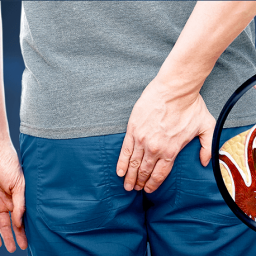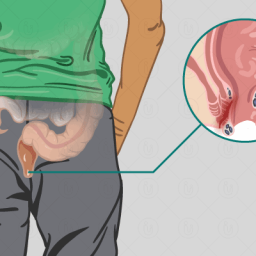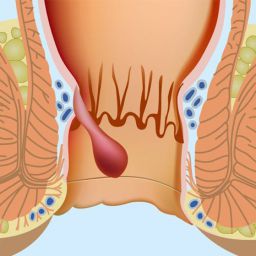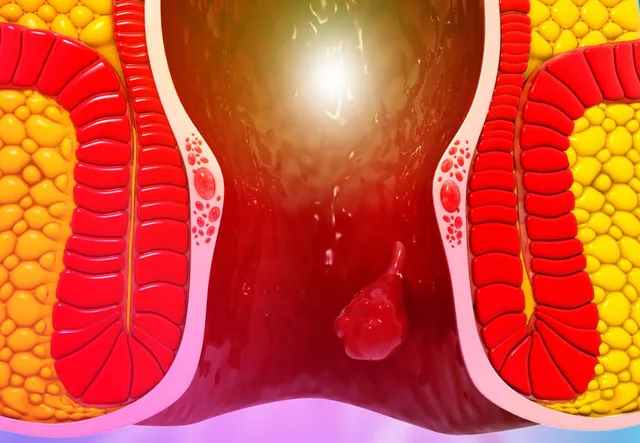
1. Physical Healing Process in Fistula Patients
The physical recovery from a fistula, particularly an anal fistula, involves a series of medical treatments aimed at repairing the abnormal passage and ensuring the affected tissue heals. The healing process can be slow, and in many cases, it may involve several phases, from the initial treatment of the infection to the final closure of the fistula tract.
Surgical Treatments and Their Impact
Most patients with anal fistulas require surgery, as it’s one of the most effective ways to treat the condition. The type of surgery performed depends on the complexity and location of the fistula, as well as the patient’s overall health. Some of the most common surgical interventions include:
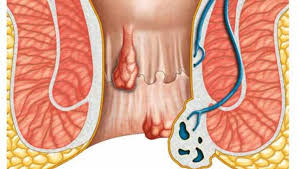
- Fistulotomy: This procedure involves cutting along the fistula tract to allow it to heal from the inside out.
- Seton Placement: In this procedure, a surgical thread (seton) is inserted into the fistula to keep it open, allowing any pus or fluid to drain while promoting healing over time.
- Flap Repair: This is often used for more complex fistulas where part of the tissue near the anus is used to cover the fistula opening.
- Ligation of the Intersphincteric Fistula Tract (LIFT): This method involves identifying and ligating the fistula tract to stop the flow of infection and promote healing.
The recovery time after surgery varies but generally lasts anywhere from several weeks to a few months. During this time, patients need to focus on several aspects of physical care to facilitate healing.
Post-Surgical Care: Ensuring Proper Healing
Following surgery, several post-operative care steps are essential for promoting healing and preventing complications:
- Wound Care: Proper cleaning of the surgical site is crucial to avoid infection. Patients should be advised to use mild soap and water and to avoid harsh chemicals or scrubbing that could irritate the area.
- Sitz Baths: Soaking in warm water helps to soothe the surgical site, reduce discomfort, and improve blood circulation to the area, all of which are vital for healing.
- Dietary Changes: A diet rich in fiber is essential for patients recovering from anal fistula surgery. Fiber helps prevent constipation, which can strain the area and hinder healing. Hydration is equally important.
- Physical Rest: While moderate physical activity is encouraged to promote circulation, avoiding strenuous activities or heavy lifting is important to prevent pressure on the healing site.
Potential Complications
While the majority of patients recover successfully from anal fistula surgery, some may experience complications. These include:
- Infection: If the fistula tract doesn’t heal properly, infection may occur, leading to abscess formation and possibly a recurrence of the fistula.
- Incontinence: Depending on the surgery performed, there may be damage to the anal sphincter muscles, which can lead to temporary or permanent issues with bowel control.
- Fistula Recurrence: In some cases, the fistula may recur after surgery. This is more common in patients with complex fistulas or those with underlying conditions like Crohn’s disease.
Proper physical support and follow-up care are critical in minimizing these risks and ensuring that healing is as smooth as possible.
2. Psychological Impact of Fistulas and Their Treatment
While the physical recovery from a fistula is a significant concern, the psychological impact of the condition and its treatment should not be overlooked. Chronic pain, discomfort, and the social stigma often associated with anal conditions can take a serious toll on a patient’s mental health. Furthermore, the long recovery periods, potential complications, and the anxiety associated with surgical outcomes can contribute to feelings of depression, stress, and anxiety.
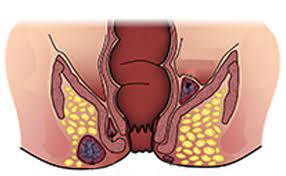
The Emotional Toll of Fistulas
Many patients with anal fistulas experience frustration, embarrassment, and anxiety about their condition. Because anal fistulas often result in symptoms such as drainage, pain during bowel movements, and possible leakage, patients may feel self-conscious about their condition. This can affect their social interactions, employment, and relationships. Fear of recurrence, surgical outcomes, and long-term complications can also cause significant psychological strain.
The Role of Mental Health Support
Psychological support is essential in helping patients cope with the emotional challenges of living with a fistula and recovering from surgery. Here are some ways in which mental health professionals can support patients:
- Counseling: Speaking with a counselor can help patients manage anxiety and depression related to their condition. Therapy can help address feelings of shame and guilt, and provide coping strategies for dealing with chronic pain and recovery.
- Support Groups: Participating in support groups can provide patients with a sense of community. Knowing that others are going through similar experiences can help reduce feelings of isolation.
- Stress Management: Psychological interventions, such as mindfulness-based stress reduction, can help patients manage stress and anxiety, which may, in turn, help with the physical healing process.
Coping Mechanisms for Patients
Patients recovering from anal fistula surgery can benefit from adopting healthy coping mechanisms. These may include:
- Mindfulness and Meditation: Practicing mindfulness can help reduce the anxiety and frustration that often accompany long recovery periods. Meditation and relaxation techniques may help patients focus on their healing and promote mental well-being.
- Physical Exercise: Moderate physical activity, such as walking or yoga, can help reduce stress and improve overall mental health. Exercise releases endorphins, which can enhance mood and contribute to faster recovery.
- Social Support: Encouraging patients to talk openly with their loved ones can help reduce feelings of isolation. Having a strong support network can provide emotional comfort and help patients stay positive during the recovery process.
Improving Patient Resilience
Resilience is the ability to cope with and bounce back from adversity. Encouraging patients to build resilience during the recovery process can significantly enhance both their physical and emotional healing. Healthcare providers can support this by:
- Setting Realistic Expectations: It is important for both the patient and the medical team to have realistic expectations about the recovery timeline. Setting achievable goals can help reduce frustration.
- Positive Reinforcement: Positive reinforcement and focusing on small victories, such as successful healing or pain reduction, can improve a patient’s outlook and confidence in their recovery.
- Providing Education: Educating patients about the healing process, potential complications, and the role of lifestyle choices can give them a sense of control and reduce anxiety.
3. The Role of Multidisciplinary Care
The healing process for fistula patients is often most successful when both physical and psychological support are provided by a multidisciplinary healthcare team. This team may include:
- Surgeons: For physical treatment and post-surgical care, ensuring proper wound healing and managing complications.
- Gastroenterologists: For patients with underlying conditions like Crohn’s disease, who may require additional care to manage inflammation.
- Psychologists or Therapists: To provide emotional support and help patients manage the psychological toll of the condition and recovery.
- Dietitians: For providing nutritional guidance to ensure patients’ diets promote healing and prevent complications like constipation.
Collaboration among these healthcare professionals ensures that patients receive comprehensive care that addresses both their physical and psychological needs.
4. Long-Term Care and Monitoring
Even after the immediate recovery period, long-term care and monitoring are necessary to ensure that fistulas do not recur and that the patient’s physical and mental health remain intact. Long-term care plans might involve:
- Regular Checkups: Follow-up visits with the surgeon or healthcare provider to monitor healing and detect potential issues early.
- Mental Health Check-ins: Periodic psychological support to help patients adjust to their new normal and manage any residual anxiety or stress related to the condition.
- Lifestyle Adjustments: Ongoing education about diet, exercise, and stress management to reduce the risk of recurrence and improve overall quality of life.
The healing process for fistula patients is complex, involving not only physical recovery but also psychological resilience. Both aspects play crucial roles in ensuring a successful recovery and reducing the risk of complications or recurrence. By addressing the physical care required post-surgery and providing comprehensive mental health support, healthcare providers can significantly improve patient outcomes.
A multidisciplinary approach that combines surgical intervention, lifestyle changes, mental health counseling, and social support can help fistula patients navigate the challenges of their recovery, ultimately leading to better physical and psychological well-being.

